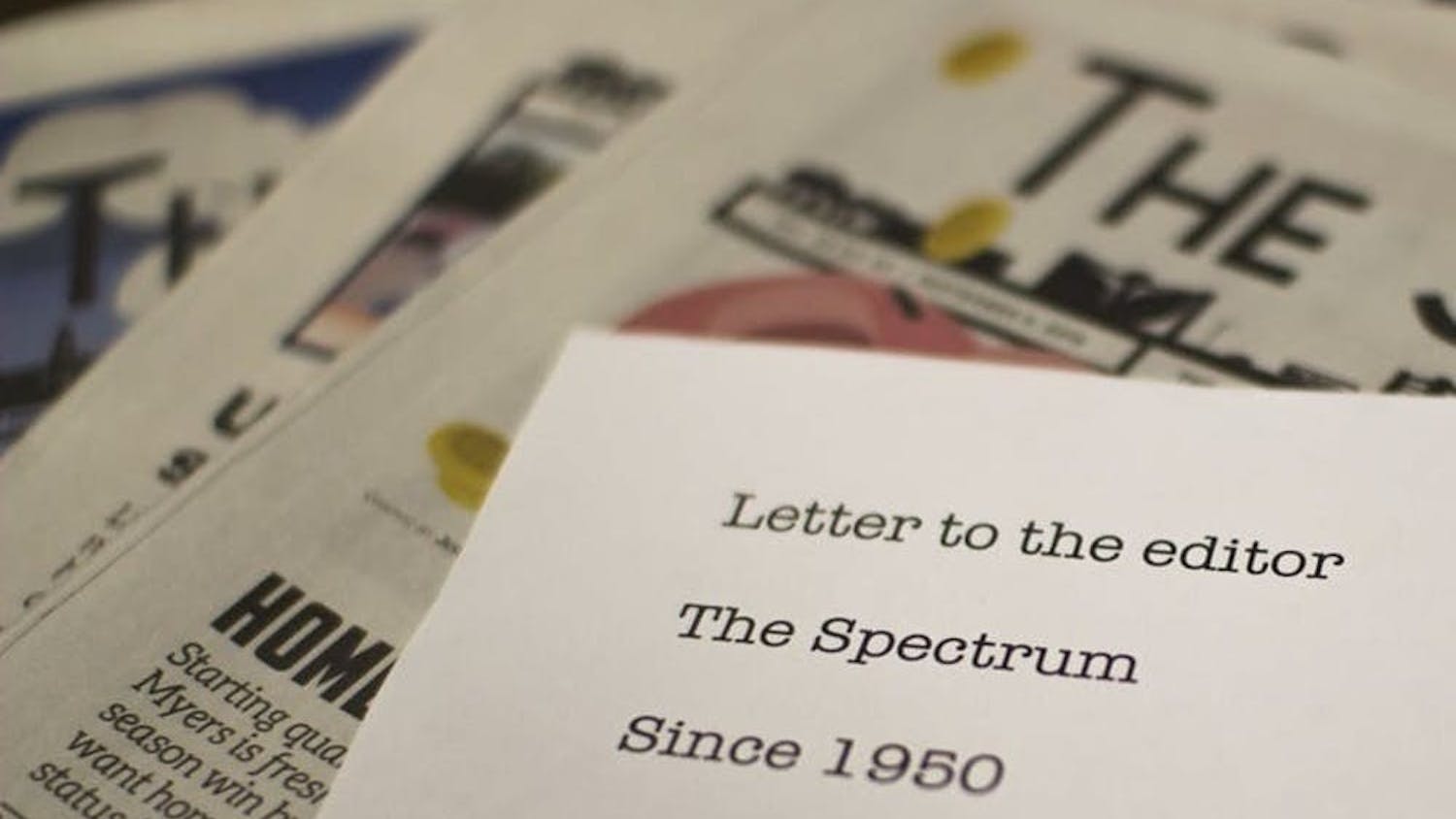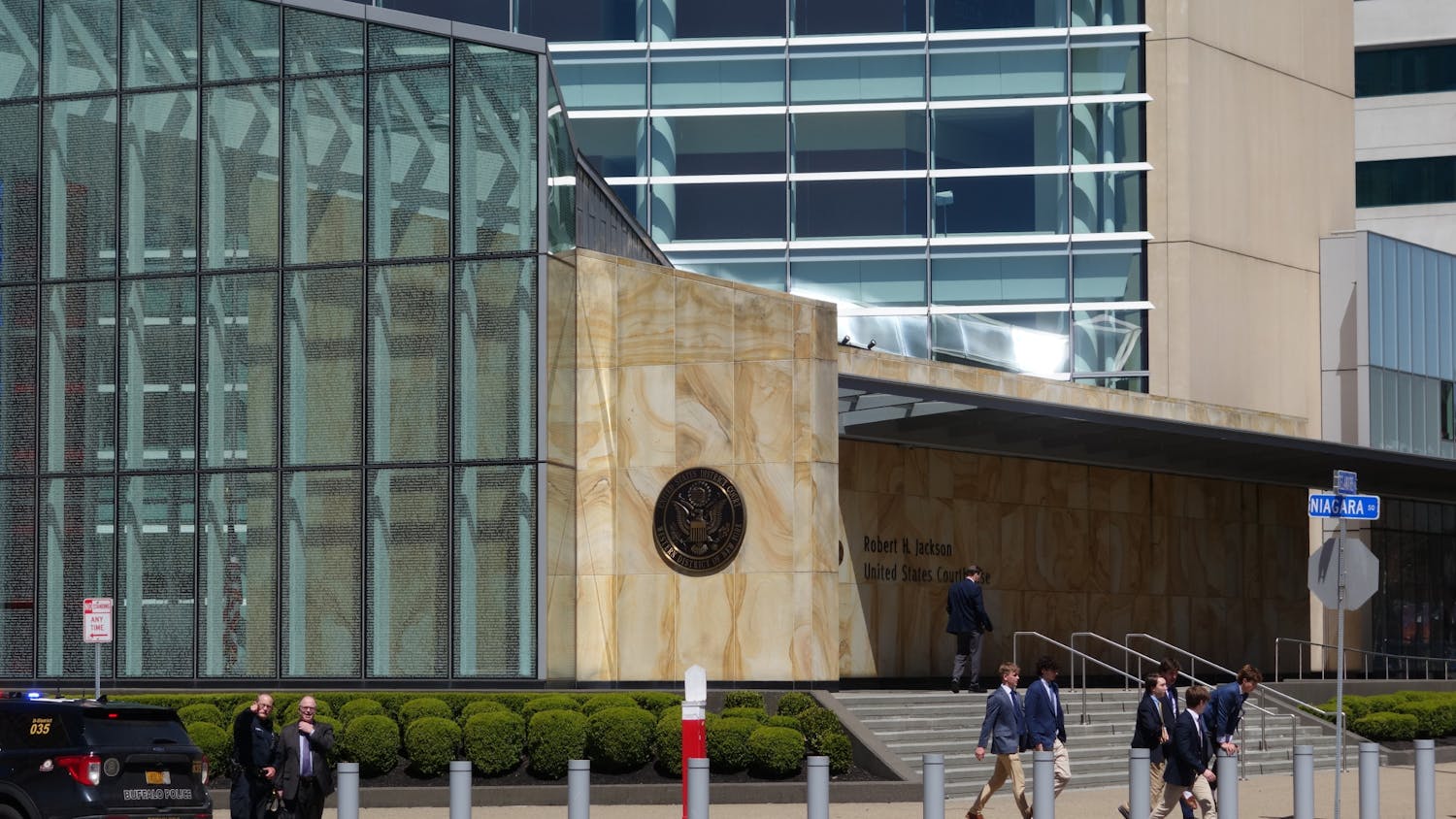Our paper had a blank front page on March 11. It was blank, but it contained a promise: We would explain why we couldn’t provide coverage of International Fiesta or document the dramatic win by the Korean Student Association.
The answer is simple.
SA President Gunnar Haberl turned away our reporter at the door. He wouldn’t let our reporter –– a student he knows and has worked with before –– into the building to cover the $19,500 SA-sponsored event. SA didn’t allow our photographers in either.
By turning us away, the SA turned you away. We represent you, the students. We’re your voice on campus. We’re the university’s historical record.
We sat down with Haberl, SA International Coordinator Elise Helou and SA Chief of Staff Jacob Brown Monday to understand what happened.
We wanted to print this letter on Monday, but wanted to give Gunnar a second chance to explain his side.
Our meeting left us even more baffled.
Gunnar, who gets paid $15,000, said he is not in charge of the international coordinator or her choice to not let us in. He was the one standing at the door with our reporter, but he said it was Elise’s decision to keep us out.
“I said [to the reporter], ‘Well, you need to talk with Elise because there’s a line that goes all the way out to the door of students who have tickets and other members of the public for a sold-out event and there’s procedures that need to be followed,’” Gunnar said.
He does not appear to accept the responsibility of his own position. The SA constitution states, the president has “the power to exercise final authority in the supervision of the office and … may give binding direction to any directors, ad hoc appointees or staff of the Student Association, except that such direction may not require such person to commit any unlawful or dangerous act.”
He and his staff also showed a stunning lack of understanding of the role of the press in society and of my staff on this campus.
We asked Elise why she “decided” not to let us cover this event. We recorded our conversation to ensure accuracy.
“I was in the stage and I was like, ‘I’m going to think about it.’ And then I thought about it in those two minutes and I was like, ‘No, it’s not fair’ and then I said, ‘No, don’t let them in,’” Elise said.
Two minutes.
In that time, she did not think about the First Amendment or about the historic role the press plays in democracy.
Rather, she said, she thought of the families and students she turned away from the sold-out event and decided it was “not fair” to let the press in. Not fair?
What is truly not fair is that we couldn’t provide the students, families –– including the parents of international students who live abroad and regularly read our paper to get news of their kids –– and alumni with coverage.
Elise also admitted she “does not know journalism."
Gunnar and his staff did everyone a disservice by shutting us out.
He should have stood up for the student body and for press freedom and let us in.
Covering an event like International Fiesta should be simple. It’s a win-win for everyone. There’s little controversy –– although we do always include the budget and report on how the evening transpired. Interestingly, this year, the Korean Student Association, with only $352.36 –– the second-lowest budget of any club according to the SA General Ledger –– pulled off the win. But we couldn’t tell you that since we didn’t see the event.
We tried explaining our role as journalists to our SA officers. All Elise and Gunnar wanted discussed was protocol. Indeed, our arts editors forgot to apply for a press pass. We admit, our editors should have done that. But editors have forgotten in the past without being turned away. We cover many events all over the city without press passes. On campus, we are all students, we know each other. This was not a high-security event with press jockeying for angles.
We were the only journalists there.
And when it comes down to it, a press pass is a formality. It’s useful to separate real press from outsiders. Gunnar knows who we are. He knows what we do. He should have helped us, not blocked the door.
We don’t always agree with student body presidents. Our job is to cover them, not befriend them.
We’re appalled by his behavior.
It’s particularly ironic since this week is Sunshine Week across the country. It’s an annual, nationwide celebration of free press and access to public events and information. We had a press conference celebrating it in our class on Monday. And last Monday, Gunnar appeared in our class to talk about his job and the relationship between SA and our staff.
We thought we were making inroads.
Part of Gunnar’s job is to talk to student press. Part of his job is to understand press freedom and the important role The Spectrum has played for the past 68 years in covering UB events.
Gunnar also told our class he is not generally available after business hours and that he tries to keep his phone away.
Again, we didn’t know how to respond.
We regularly talk to UB administrators and faculty after hours and on weekends. We talk to city officials, too.
News doesn’t happen neatly during business hours. It’s rarely convenient. Politicians –– even student ones –– know that. Or they should.
Instead of us, SA had a “media squad” of 11 paid students posting about the fiesta on social media, according to the SA budget.
That is not journalism.
That is not public record.
Elise told us UBNow was covering the event.
That, too, is not journalism.
It’s public relations.
We’re taught that in our journalism classes, but we need our student body representatives to understand it in practice. It’s especially true if they aspire to hold future community or state leadership positions.
We hope our student leaders think about this. We hope it inspires a campus dialogue about The Spectrum’s role and the importance of a free press.
We’re disappointed our student president and his staff prevented our coverage.
We expect more from our leaders.
Hannah Stein is the editor in chief and can be reached at eic@ubspectrum.com.




